1. Many countries shift to live safely with COVID-19
Variants of the virus SARS-CoV-2, especially Delta and Omicron, complicate the COVID-19 pandemic with nearly 280 million infections and over 5.4 million deaths globally.
    |
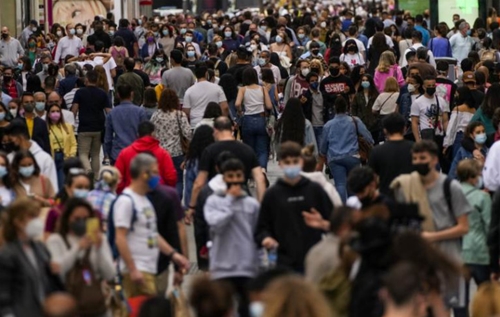 |
|
People wear face masks to protect against the spread of coronavirus. (A file photo: AP) |
The World Health Organization has approved eight vaccines against COVID-19 for emergency use. Many countries have adjusted from the policy of “zero COVID” to “safely living with COVID-19,” sped up mass vaccinations and applied mandatory vaccination regulations to control the pandemic, thus helping the global economy gradually get out of recession and recover in the last months of the year. To date, more than 56 percent of the world's population has been inoculated with the full two doses, and the vaccination rate in poor countries is less than 10 percent.
    |
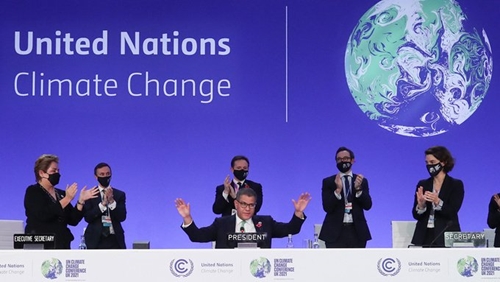 |
|
Delegates clap for COP26 President Alok Sharma on the conference’s last day. (Photo: Reuters) |
2. COP26 achieves numerous commitments on gas emission reduction
The 26th session of the Conference of the Parties of the U.N. Framework Convention on Climate Change (COP26) taking place in Glasgow in the United Kingdom agreed to adopt the Glasgow Climate Pact, reaffirming its commitment to maintaining its goal of keeping global temperature rise at below 1.5 degrees Celsius. Many countries also announced specific deadlines to bring net emissions to zero and put an end to deforestation, while pledging to cut greenhouse methane emissions by 30 percent by 2030, stop investment in fossil fuels, and increase financial assistance for poor and developing countries in response to climate change. These represent a step forward in the global approach to climate change.
3. ASEAN strives to find solutions to regional stability and development
ASEAN reached a 5-point consensus on resolving the Myanmar situation, while agreeing to promote cooperation in response to COVID-19, step up economic recovery, and build the ASEAN Community Vision after 2025. ASEAN has also seen hallmarks on external relations with the establishment of Comprehensive Strategic Partnerships with China and Australia, the granting of the full Dialogue Partner status to the United Kingdom, and efforts to demonstrate its central role in cooperation with partners and organizations outside the region.
    |
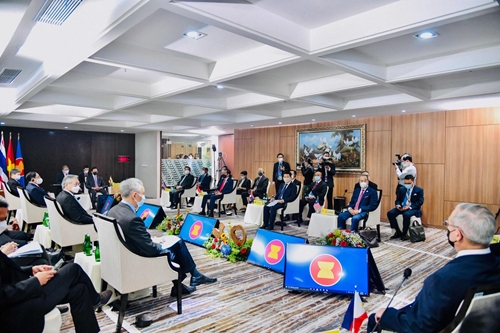 |
|
Leaders attend the Association of Southeast Asian Nations summit on the Myanmar crisis in Jakarta. (Photo: bangkokpost) |
4. China declares the completion of moderately prosperous society
China marked the 100th anniversary of the founding of the Communist Party of China (CPC) (July 1, 1921-2021) by affirming the accomplishment of the goal of building a moderately prosperous society and enter a new stage of developing a modern socialist country that is prosperous, strong, democratic, culturally advanced, harmonious and beautiful by 2049. China has made prominent and comprehensive achievements in all fields, and shown increasing role and influence. China is currently the world’s second largest economy, with its total trade volume leading the world. It is the largest trading partner of 130 economies, and contributes about 30 percent of global economic growth.
5. U.S. President Joe Biden changes many policies issued by his predecessor
With the policy of partnering with friends and learning more about rivals, President Joe Biden abandoned the principle of “America first”, changed or even reversed many of the policies adopted by his predecessor. Biden has re-engaged the U.S. into many multilateral organizations and international agreements, cemented ties with traditional allies, and built alliances like AUKUS, a trilateral security pact between Australia, the United Kingdom and the United States, to maximize benefits and restore its international position.
    |
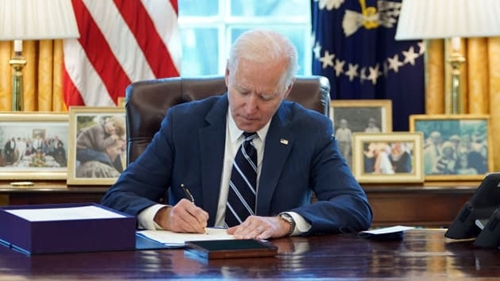 |
|
President Joe Biden signs the American Rescue Plan on March 11, 2021, in the Oval Office of the White House in Washington, D.C. (Photo: Getty Images) |
Domestically, President Joe Biden signed an economic relief package named “America Rescue Plan” worth 1.9 trillion USD, proposed a plan to build infrastructure worth 2.3 trillion USD, promoted the approval of two bills on tightening gun control, and made some commitments on immigration.
6. Taliban returns to power in Afghanistan
On August 15, Taliban took control of Kabul capital, and returned to power in Afghanistan after 20 years. Currently, the new Taliban government has not been recognized internationally and the South Asian country is facing violent conflicts, a division between ethnic groups, terrorism threats and a serious humanitarian crisis.
The international community has stepped up efforts to stabilize the situation in Afghanistan and prevent multinational terrorist activities in the context that the U.S. has officially completed a plan to withdraw all forces from Afghanistan on August 31 after 20 years of fighting.
    |
 |
|
Taliban fighters take control of the Afghan presidential palace. (Photo: AP) |
7. German Chancellor Angela Merkel leaves office after 16 years
On October 26, German President Frank-Walter Steinmeier handed over the decision to end her term for Chancellor Angela Merkel. With four consecutive terms in office since 2005, Angela Merkel has left her deep hallmarks as a powerful female politician who has helped lead Germany and the European Union (E.U.) to overcome difficult times related to the financial, public debt and migrant crises, with many achievements both at home and abroad. Rated as Europe's most influential leader, and voted the most powerful woman in the world by Forbes magazine 14 times, Merkel has made Germany the largest economy in Europe and a symbol of peace and harmony.
8. Energy crisis and global supply chain disruptions
Energy shortages and supply chain disruptions on a global scale have severely impacted the supply and distribution of numerous types of goods. The prices of oil, gas and coal skyrocketed, pushing up the price of electricity, and leading to an escalation in consumer price index and inflation. Many businesses and factories had to close due to the shortage of electricity and production materials, thus negatively affecting the world economic recovery.
    |
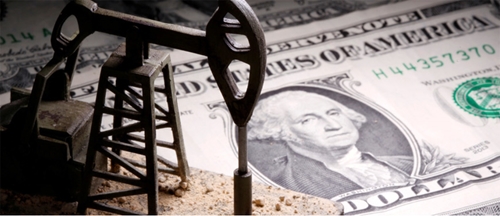 |
|
The prices of oil, gas and coal skyrocket, pushing up the price of electricity, and leading to an escalation in consumer price index and inflation. (Photo for illustration: Reuters) |
In March 2021, the supply chain through the Suez Canal was paralysed due to the incident of the super-heavy container ship Ever Given, which was stuck for nearly a week, causing about 400 million USD in damage per hour. The incident caused more than 400 other ships to be blocked, thereby cutting off the circulation of about 15 percent of global sea freight at that time.
9. Imprints on space tourism and culture
The journey to explore the space has made significant progress thanks to the great development of the private space tourism industry.
On July 20, U.S. billionaire Jeff Bezos joined the first space exploration on the New Shepard spacecraft researched and tested by his company Blue Origin. The youngest passenger on board this spacecraft was an 18-year-old Dutch student. Three months later, Blue Origin made a second flight carrying its oldest passenger, 90-year-old Canadian actor William Shatner.
In October, a Russian film crew spent 12 days on the International Space Station (ISS) shooting the first movie in orbit called “The Challenge.” Russian news agency TASS has signed an agreement to open the first permanent representative office of a media agency on the ISS.
10. Many major international sport events resume
After a year of being postponed due to COVID-19, the Tokyo 2020 Summer Olympics and Paralympic Games were held in Japan from late July to early September. Meanwhile, June and July saw the UEFA Euro 2020 taking place in 11 European cities and the 2021 Copa América in Brazil. The organization of major sport events on a global scale has helped gradually recover the field, bringing positive energy to fans after a long wait due to the COVID-19 pandemic.
Source: VNA